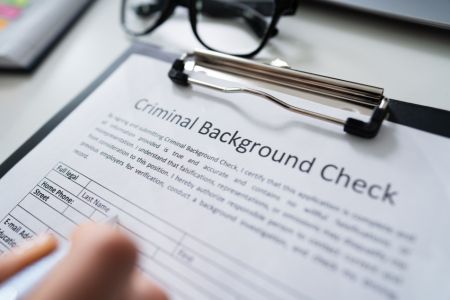Have you ever wondered how your past might influence your job prospects? A criminal history can have a significant impact on employment opportunities, especially when a national police check is involved. Employers often seek this background information to assess a candidate’s suitability for a role. But how does a criminal record affect this process, and what should job seekers be aware of?
In this article, we’ll explore the ways in which a criminal history can affect your employment prospects. We will also discuss how employers might interpret the information from a nationally coordinated criminal history check. Understanding these impacts can help you navigate the job market with greater confidence.
Role of Criminal History in Employment Checks
The criminal report plays a critical role in employment checks. Employers conduct police checks to ensure that candidates are suitable for the role and the workplace. Depending on the nature of the job, certain offences could raise red flags. For example, a conviction for fraud might concern a hiring manager if you’re applying for a finance role. It’s essential to remember that not all histories will automatically disqualify you from a job.
How Employers Interpret Police Checks
When a police check reveals a record, employers don’t just focus on the conviction itself. They consider the context and nature of the offence. Factors such as how long ago the incident occurred and whether it is relevant to the job play a role in their decision-making process. A nationally coordinated criminal history check provides employers with a comprehensive view, but it’s up to the employer to interpret the findings.
Job Types Where History Matters Most
Certain jobs are more affected by an offence history than others. Roles that involve working with vulnerable people, managing finances, or handling sensitive information often require a clean background. For instance, if you’re applying for a teaching position, a history of violent offences may severely limit your chances of being hired. In contrast, for some positions, minor offences or older convictions may not weigh as heavily.
Impact of Different Types of Offences
Not all offences are viewed equally by employers. Minor offences, such as traffic violations, might not impact your application as much as serious crimes like assault or theft. The severity of the offence will influence how employers assess your suitability for a role. For example, someone with a criminal record involving theft might struggle to secure employment in roles that require trust and integrity, such as retail or banking.
Possibilities of Getting Hired With a Criminal Record
Having a criminal record doesn’t mean you’ll never get hired. Many employers recognise that people can change and are willing to consider the context of a candidate’s past. If you have a history of minor offences, some employers may be more forgiving, especially if you’ve had a clean record for several years. It’s also helpful to be upfront and honest about your history during the interview process.
How to Manage Your Criminal History During a Job Search
If you’re concerned about how your criminal history might affect your job search, there are steps you can take to manage the situation. First, know what’s in your record by obtaining your own police check before applying for jobs. This will give you a clear idea of what employers will see and allow you to prepare explanations for any concerns they might have. Second, focus on applying for roles where your criminal history is less likely to be a barrier.
A nationally coordinated criminal history check can impact your employment prospects, but it doesn’t necessarily have to stop you from finding a job. Make sure you approach your job search with confidence and focus on positions where your background will be less of a hurdle. With the right strategies, you can still find meaningful employment and build a successful career.



